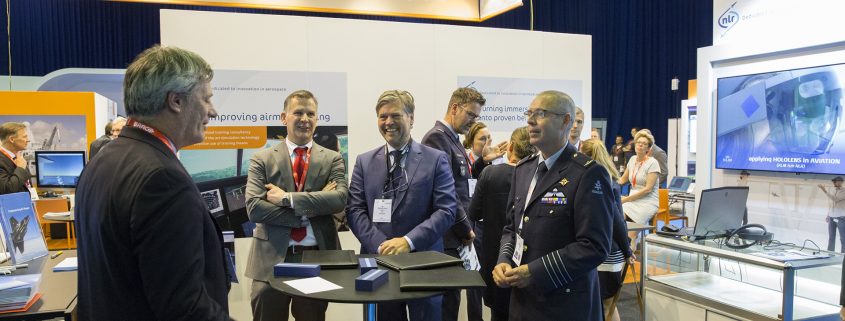Netherlands Organization for Applied Scientific Research (TNO) and NLR are to support the Dutch Ministry of Defence in investigating the possibilities for setting up a simulation network. Such a network would allow the Ministry to save on training and education costs, and to prepare military personnel more effectively for the execution of missions. The MTDS project (‘Mission Training through Distributed Simulation’) is aimed at improving the safety of personnel, enabling them to collaborate more closely and to make more effective use of equipment. NLR, TNO and the Ministry of Defence signed the relevant contract at the ITEC conference and exhibition in Rotterdam on 16 May. The MTDS project has a lead time of four years, and involves a total investment of 5.7 million euro.
The project is aimed at contributing to the effectiveness and preparedness of the Dutch armed forces by providing training environments that make optimal use of the possibilities of distributed simulation. This will enable the Ministry of Defence to save on training costs, execute missions more effectively, and better protect the safety of personnel.
The Dutch armed forces generally carry out their missions in collaborations and alliances with other countries. Innovative technologies make it possible to conduct ‘distributed’ simulations, which means they can be carried out simultaneously in multiple locations, thus enabling the coalition partners to participate in joint training. This enables the parties involved to save on training and preparation costs. In addition, mission environments are becoming ever more complex: theatres of operations are becoming larger and the number of airborne and land-based threats is growing. Furthermore, platforms such as fighter aircraft are equipped with increasingly advanced sensor systems for the detection of threats. Due to the costs and complexities involved, it is difficult to ensure that personnel put in enough training hours on such systems and platforms in a live environment.
TNO and NLR will conduct research into an infrastructure that will enable the Ministry of Defence to conduct quick and targeted mission simulations as part of a distributed international simulation network. Among other things, this means that TNO and NLR will supply building blocks for the development of new scenarios and for the use of existing scenarios and models of residential environments and military equipment. It will also be possible to represent cyber threats and incorporate safeguards for linking up multiple simulation environments.



